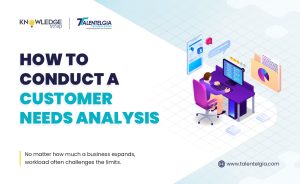Fintech applications are a mixture of technology and finance designed to make services related to banking and finances accessible to everyone. They can be employed for many purposes from digital payments, to money transfers, lending, investments, crowdfunding, and personal administering. According to the industry or customers they serve, fintech allotments are broken down into consumer banking, insurance, and equity funding. Evolving from the traditional credit cards and ATMs, these allotments are taking advantage of cutting edge tools such as artificial intelligence, cloud computing, blockchain, and big data. It’s no surprise that fintech is literally upending the whole finance and banking sector across the globe.
In this blog, you’ll learn what fintech apps are, their Benefits & Risks, how they function, and how to identify the best fintech app adjusted to your needs. We’ll also include a few examples of reputable fintech applications belonging to distinct classes.
How do fintech apps work?
Fintech applications make use of software and algorithms in order to digitize and automate financial services. Unlike many conventional institutions, they do not have any physical offices or branches, but operate over the web or on mobile phones. Furthermore, they employ APIs (application programming interfaces) to build connections with external entities, like banks, payout gateways, credit bureaus or third-party operators. Winch allows them to not only offer customized and enhanced services, but also to analyze user data and take advantage of machine learning.
What are the benefits of fintech apps?
Fintech applications provide numerous benefits to both users and businesses. These include:
- Increased convenience: The procedure for opening a Fintech account is much less complex than is typical with conventional companies. End users can just acquire a Net connection and register for access to financial services like payments, credit, insurance, investment and the like.
- Decreased charges: Fintechs are digital services and this minimizes, or even excludes, overhead costs and enables consumers to get bottom-line figures that are inferior to those provided by regular banking organizations.
- Elevated financial procedures: Fintech applications make it feasible for users to supervise their finances by using a tablet or mobile device – immensely reducing the amount of time necessary for operations such as payments and approval of loan applications.
- Expanded range of possibilities: Many Fintech apps are designed to manage a variety of operations, from digital payments, insurances and investing to monetary advice. Usually, one application permits people to make several financial deals through a single program.
- Personalization: Innovative technologies empower Fintechs to effectively gather and treat user data with the mission of providing them with tailored services that meet their financial characteristics and objectives.
What are the challenges of fintech apps?
Fintech apps also face some challenges that may limit their growth or success. Some of the challenges include:
- Regulation: Fintech apps operate in a highly regulated industry that may vary from country to country or state to state. Fintechs need to comply with various laws and regulations regarding consumer protection, data privacy, anti-money laundering, taxation, etc. This may increase their operational costs and risks.
- Security: Fintech apps handle sensitive information such as personal data, bank accounts, credit cards, etc. This makes them vulnerable to cyberattacks or frauds that may compromise their security and reputation. Fintechs need to invest in robust security measures and systems to protect their users’ data and transactions.
- Competition: Fintech apps face fierce competition from both traditional financial institutions and other fintech startups. They need to constantly innovate and improve their products and services to attract and retain customers. They also need to differentiate themselves from their competitors by offering unique value propositions or niche solutions.
- Customer trust: Fintech apps rely on customer trust and loyalty to grow and sustain their business. However, customer trust may be difficult to build or maintain due to factors such as lack of awareness, unfamiliarity, skepticism, or negative experiences. Fintechs need to establish credibility and transparency with their customers by providing clear information, quality service, customer support, etc.
Read also – The Scope of Blockchain Applications
How to choose the best fintech app for your needs?
There are many fintech apps available in the market that cater to different needs and preferences of customers. To choose the best fintech app for your needs, you need to consider some factors such as:
- Your financial goals: What are you trying to achieve with your finances? Do you want to save money, invest money, borrow money, transfer money, or manage money? Depending on your goals, you can choose a fintech app that offers the service or solution that suits you best.
- Your financial situation: What is your current financial situation? How much money do you have or need? What is your income level or credit score? Depending on your situation, you can choose a fintech app that offers the best terms or conditions for you.
- Your financial habits: How do you manage your finances? How often do you use financial services? How comfortable are you with technology? Depending on your habits, you can choose a fintech app that matches your style or preference.
- Your financial security: How important is security for you? How much risk are you willing to take? How much trust do you have in the fintech app? Depending on your security, you can choose a fintech app that provides the best protection or assurance for you.
Examples of fintech apps
Here are some examples of popular fintech apps in different categories:
- Digital banking and neobanks: These apps provide banking services online 24/7 without requiring the client to visit a physical branch to open an account or take out a loan. Examples include Revolut, Chime and Monzo.
- Open banking: These apps enable third parties (fintech app developers) to access the client’s bank data with their consent to create a connected network of financial services for convenient financial management. The use case of open banking is Plaid which allows users to log in and share their data securely.
- Insurtech: These apps help streamline insurance processing by providing improved risk assessment, which is a faster way to apply for coverage or process claims. Examples include Hippo, Steppie, Lemonade, etc.
- Regtech: These apps help financial service companies meet industry compliance regulations, such as Anti Money Laundering (AML) and Know Your Customer (KYC). ComplyAdvantage is an example of such a fintech software.
- Lending: These apps provide loans or credit to individuals or businesses through online platforms or peer-to-peer (P2P) networks. Examples include LendingClub, Kabbage, Affirm, etc.
- Payments: These apps enable users to make or receive payments digitally through various methods such as mobile wallets, QR codes, NFC, etc. Examples include PayPal, Venmo, Square, etc.
- Investment: These apps allow users to invest their money in various assets such as stocks, bonds, ETFs, cryptocurrencies, etc. through online platforms or robo-advisors. Examples include Robinhood, Acorns, Wealthfront, etc.
- Crowdfunding: These apps allow users to raise funds for their projects or causes from a large number of people through online platforms or social networks. Examples include Kickstarter, Indiegogo, GoFundMe, etc.
- Personal finance: These apps help users manage their personal finances by providing tools such as budgeting, saving, spending tracking, financial education, etc. Examples include Mint, YNAB, Personal Capital, etc.
Read also – Blockchain vs Traditional Database
Building a positive work culture
Fintech apps are not simply about technology and finance. They involve people and culture as well. To ensure their success, they must cultivate a beneficial work atmosphere, characterised by creativity, collaboration, and customer gratification. Doing so can bring several advantages, including:
- Enhanced worker welfare and contentment
- Reduced staff turnover and increased loyalty
- Better performance and productivity
- Satisfied customers and higher customer conservation
- A strengthened repute and brand value
- When striving to establish a positive work atmosphere, fintech apps must remember several elements, such as:
- Vision and values: Put together a transparent and definitive plan of direction and ideals that corresponds with their objectives and strategies, and make sure their personnel and customers are aware of it.
- Leadership and management: Make sure to provide a source of inspiration and enablement for their employees and customers; additionally, they should foster a sense of trust and responsibility.
- Communication and collaboration: Implement efficient communication and cooperation techniques that facilitate information swap and synergy among the people involved. Furthermore, a culture of opennessness, broadmindedness, and integration should be preferred.
- Learning and development: Offer learning and development options which aid in upskilling, forming expertise, and growing knowledge, and also ensure coaching, mentoring, and feedback are obtainable.
- Recognition and rewards: Offer incentives, bonuses, fringe benefits, perks, and gamification elements to reward the performance and behavior, and increase the motivation of both personnel and customers.
Conclusion
If you are looking for a fintech app development company that can help you create a fintech app with a positive work culture, you can contact Talentelgia, a leading fintech app development company that offers best-in-class services such as:
- Custom fintech app development
- Fintech app design
- Fintech app testing
- Fintech app maintenance
- Fintech app integration
- Fintech app consulting
Talentelgia Technologies has a team of experienced fintech app developers who can create fintech apps for various platforms such as iOS, Android, web, etc. They use the latest technologies such as AI, blockchain, cloud computing, big data, etc. to create fintech apps that are secure, scalable, user-friendly, and innovative.
Talentelgia also has a positive work culture.







